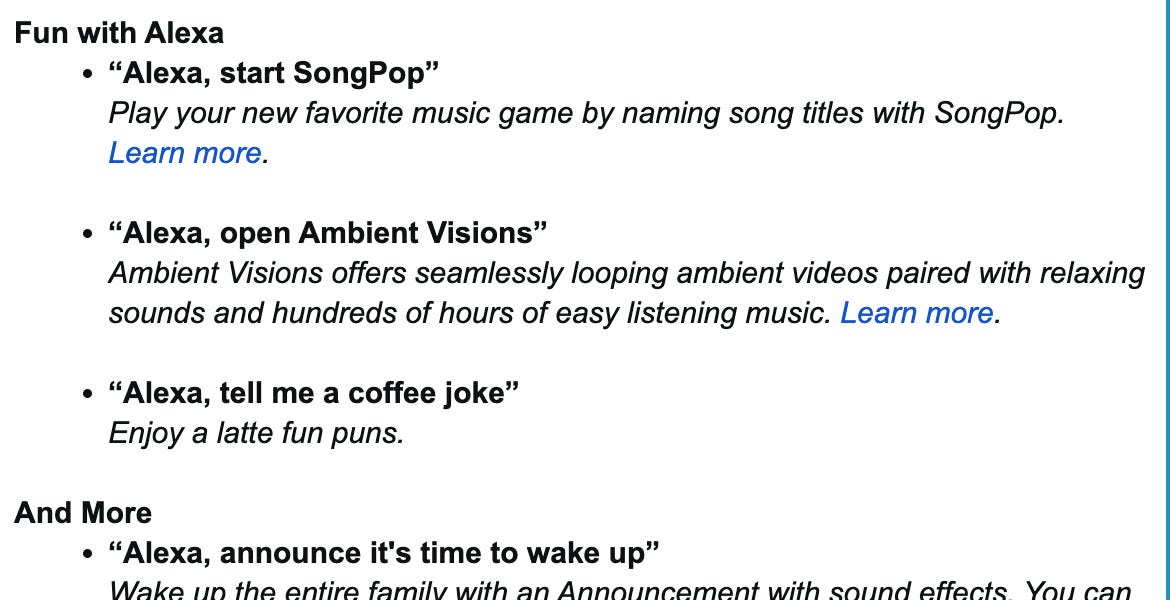Alexa, Change your OKRs

🌈 Abstract
The article discusses the issues with Alexa's constant upselling of features and the problems with using metrics and corporate incentives to drive product development. It argues that a more thoughtful, user-centric approach is needed, rather than relying solely on measurable goals and incentives.
🙋 Q&A
[01] The Tyranny of Metrics
1. What is the issue with the Alexa team's OKR centered on increasing the percentage of Alexa users who use scheduled routines or proprietary apps?
- The issue is that while this OKR makes sense from a business perspective, it fails to capture the animosity and frustration built up by constantly pushing these features on users in an intrusive way through their voice assistant in their home.
- The team likely has "guardrail metrics" like user retention or daily active users to ensure there is no obvious downside, but these are blunt instruments that don't capture the gradual erosion of the user experience.
- Each sub-team within Alexa is incentivized to promote their own features to hit their OKRs, leading to a bloated experience with too many upsells.
2. Why is it difficult to attribute a user leaving a product to one specific change?
- It's difficult to directly attribute user churn to a specific change, as there are many factors that can contribute to a user deciding to stop using a product. The cumulative effect of multiple small annoyances is hard to measure.
[02] What to do instead?
1. What does the author suggest as an alternative to the current Alexa product management approach?
- The author suggests having a person at the top who uses the product extensively and can make decisions on behalf of the user, informed by data but not solely driven by it.
- This would require the organization to place trust in human taste and judgment, rather than relying solely on measurable goals and incentives.
2. Why is it difficult to build a perfect product using measurable goals and incentives?
- For products where a lot of the value comes from the user's emotional experience, such as a voice assistant in the home, the feeling of good or bad design is not easily measurable.
- The author argues that the further a product is towards the "delightful experience" end of the spectrum, the more it must be designed with human taste, and the harder it is to build an OKR machine that outputs the desired result.
Shared by Daniel Chen ·
© 2024 NewMotor Inc.